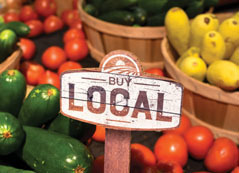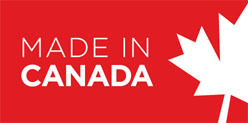Punching above our weight – Grocery Business Magazine




by
Consumers, both within Canada and around the world, have come to recognize made-in-Canada products as high quality, safe, and from trustworthy brands. It’s a well-earned reputation built on years of success, but in a changing global economy, is it enough? Where do we go from here?
For retailers, made in Canada offers strategic marketing advantages, with many focusing on Canadian and locally made items for a competitive edge. Most of these manufacturers are small to medium-size enterprises (SMEs), investing in growth in Canada and abroad. This growth is mirrored at Food, Health & Consumer Products of Canada (FHCP), where we have doubled our membership in the last seven to eight years, with SMEs now constituting nearly 40 per cent of our manufacturers. To address their unique needs, we established the FHCP SME Council, working with both retailers and service providers through FHCP’s Associate Member Program to help these brands punch above their weight.
The pandemic exposed Canada’s reliance on imports, including finished goods, raw materials, and packaging. The unpredictability of global supply chains impacted sourcing, production and logistics, affecting product availability on store shelves. In contrast, made-in-Canada goods consistently maintained higher availability levels at retail due to their domestic manufacturing, which faced fewer challenges from competing market demands or logistical issues compared to U.S. and global facilities.
The current, favourable foreign exchange rate offers Canadian brands significant export opportunities. While this is beneficial, industry and government’s collective focus should be on enhancing the choices available to Canadian consumers and ensuring a stable pipeline of innovative products for a long-term, sustainable market in Canada. As manufacturers and retailers, we are hungry to drive more volume in our shrinking market. Rather than reducing product assortment, we should leverage the increase in our population and the diversity of our demographics by expanding product offerings to Canadians.
Now is the time to boost innovation, not sacrifice it for internal efficiencies. Embracing comprehensive, end-to-end efficiency improvements that support both innovation and productivity is the clear answer and, in the current landscape, SMEs can play a powerful role in generating incrementality.
Lastly, an aspect of the made-in- Canada narrative that deserves more attention is our homegrown leadership. Canada’s unique challenges, including its vast geography and lower population density compared to our neighbours down south, compel Canadian leaders to adopt creative, efficient and collaborative approaches to meet competitive global standards. This necessity has not only resulted in more Canadian-bred leaders heading the Canadian divisions of multinational manufacturers but has also led to their selection for leadership roles in the U.S. and international divisions. I am fortunate to work and learn from the best leaders in the manufacturing and retail sector globally, who are, notably, Canadian, underlining the impact and capability of Canadian leadership within the global arena.
Errol Cerit is executive vice president, industry, public affairs and business development for Food, Health & Consumer Products of Canada (FHCP)
Source: grocerybusiness.ca

